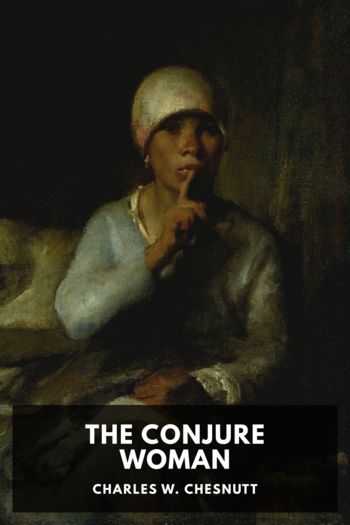The Story of Gösta Berling, Selma Lagerlöf [best way to read books txt] 📗

- Author: Selma Lagerlöf
Book online «The Story of Gösta Berling, Selma Lagerlöf [best way to read books txt] 📗». Author Selma Lagerlöf
They went to bed, and went to sleep, but it was not their lot to sleep in peace and quiet till noon, as you and I, dear reader, might have done, if we had been awake till four in the morning and our limbs ached with fatigue.
It must not be forgotten that the old major’s wife went about the country with beggar’s wallet and stick, and that it never was her way, when she had anything to do, to think of a poor tired sinner’s convenience. And now she would do it even less, as she had decided to drive the pensioners that very night from Ekeby.
Gone was the day when she sat in splendor and magnificence at Ekeby and sowed happiness over the earth, as God sows stars over the skies. And while she wandered homeless about the land, the authority and honor of the great estate was left in the pensioners’ hands to be guarded by them, as the wind guards ashes, as the spring sun guards the snowdrift.
It sometimes happened that the pensioners drove out, six or eight of them, in a long sledge drawn by four horses, with chiming bells and braided reins. If they met the major’s wife, as she went as a beggar, they did not turn away their heads.
Clenched fists were stretched against her. By a violent swing of the sledge, she was forced up into the drifts by the roadside, and Major Fuchs, the bear-killer, always took pains to spit three times to take away the evil effect of meeting the old woman.
They had no pity on her. She was as odious as a witch to them as she went along the road. If any mishap had befallen her, they would no more have grieved than he who shoots off his gun on Easter Eve, loaded with brass hooks, grieves that he has hit a witch flying by.
It was to secure their salvation that these unhappy pensioners persecuted the major’s wife. People have often been cruel and tortured one another with the greatest hardness, when they have trembled for their souls.
When the pensioners late at night reeled from the drinking-tables to the window to see if the night was calm and clear, they often noticed a dark shadow, which glided over the grass, and knew that the major’s wife had come to see her beloved home; then the bachelors’ wing rang with the pensioners’ scornful laughter, and gibes flew from the open windows down to her.
Verily, lovelessness and arrogance began to take possession of the penniless adventurers’ hearts. Sintram had planted hate. Their souls could not have been in greater danger if the major’s wife had remained at Ekeby. More die in flight than in battle.
The major’s wife cherished no great anger against the pensioners.
If she had had the power, she would have whipped them like naughty boys and then granted them her grace and favor again.
But now she feared for her beloved lands, which were in the pensioners’ hands to be guarded by them, as wolves guard the sheep, as crows guard the spring grain.
There are many who have suffered the same sorrow. She is not the only one who has seen ruin come to a beloved home and well-kept fields fall into decay. They have seen their childhood’s home look at them like a wounded animal. Many feel like culprits when they see the trees there wither away, and the paths covered with tufts of grass. They wish to throw themselves on their knees in those fields, which once boasted of rich harvests, and beg them not to blame them for the disgrace which befalls them. And they turn away from the poor old horses; they have not courage to meet their glance. And they dare not stand by the gate and see the cattle come home from pasture. There is no spot on earth so sad to visit as an old home in ruin.
When I think what that proud Ekeby must have suffered under the pensioners’ rule, I wish that the plan of the major’s wife had been fulfilled, and that Ekeby had been taken from them.
It was not her thought to take back her dominion again.
She had only one object—to rid her home of these madmen, these locusts, these wild brigands, in whose path no grass grew.
While she went begging about the land and lived on alms, she continually thought of her mother; and the thought bit deep into her heart, that there could be no bettering for her till her mother lifted the curse from her shoulders.
No one had ever mentioned the old woman’s death, so she must be still living up there by the ironworks in the forest. Ninety years old, she still lived in unceasing labor, watching over her milk-pans in the summer, her charcoal-kilns in the winter, working till death, longing for the day when she would have completed her life’s duties.
And the major’s wife thought that her mother had lived so long in order to be able to lift the curse from her life. That mother could not die who had called down such misery on her child.
So the major’s wife wanted to go to the old woman, that they might both get rest. She wished to struggle up through the dark woods by the long river to the home of her childhood.
Till then she could not rest. There were many who offered her a warm home and all the comforts of a faithful friendship, but she would not stop anywhere. Grim and fierce, she went from house to house, for she was weighed down by the curse.
She





Comments (0)